 A few days ago, Jay Cronley of the Tulsa World wrote an editorial which sent legendary #oklaed blogger Rob Miller a bit over that edge from which he otherwise enjoys the view.
A few days ago, Jay Cronley of the Tulsa World wrote an editorial which sent legendary #oklaed blogger Rob Miller a bit over that edge from which he otherwise enjoys the view.
In it, Cronley suggests that schools receiving poor marks on the state’s vague, insulting, widely discredited A-F report card stop their whining and simply do what schools getting high grades do.
I’m all for that. It’s embarrassingly obvious, in retrospect – if you want a better football team, publicly degrade the coach, sure. But just as critically, only accept good players on your team. That’s how the so-called “real world” works, yes?
You only blame the coach when it’s clear there’s sufficient talent on the roster, but not enough points on the board. (Right, Bruce Boudreau?) Otherwise you need to get busy making trades and securing draft picks. Cut the dead weight from that locker room!
The schools not doing well are thus either lazy or stupid. Despite the best efforts of the state to push them into the light, they’re still letting pretty much every little loser turd-child walk in the door several days a week and play school with them. Seriously, TPS and others so inclined? This is why the Dallas Cowboys keep losing – no quality control at all.
Forget remediation. If those little parasites can’t read-to-learn by the end of 3rd grade, kick their little asses OUT. Go hang with the Factionless, Billy. Oh, wait – you won’t get that allusion BECAUSE YOU CAN’T $#&@ING READ.
What else are we supposed to do to them?
 No, seriously – I get that school-shaming and teacher-blaming are supposed to motivate excellence (thanks, Stalin), but once the schools and teachers are done whining and complaining and are finally ready to step up, what exactly would you like us to do to force these little failures to learn gooder?
No, seriously – I get that school-shaming and teacher-blaming are supposed to motivate excellence (thanks, Stalin), but once the schools and teachers are done whining and complaining and are finally ready to step up, what exactly would you like us to do to force these little failures to learn gooder?
Surely you don’t believe that scribbling a few letters and numbers on a piece of paper and mailing it it to their fake address drives the average 11-year old to excellence, do you? Grades are horrible motivators unless the kid already carries an unhealthy fixation on them derived from whatever her parents have indoctrinated her to believe about herself.
But those aren’t the kids getting us in the damn newspaper. So what else could we try?
I suppose a good talk with the average 8th grader about his college and career prospects might motivate him to give up the Xbox and plow through that 17th Century sonnet one more time.
HAHAHAHAHAHAHAHAHA!!! Oh, that was rich. I needed a break from all this serious talk.
The maximum reach of “future planning” among freshmen is about eleven minutes. It’s delusional to expect teenagers to have better self-control and long-term focus than most adults when asked if they want bacon on that.
 We’re not actually allowed to hit them anymore, so that’s off the table. Based on a handful of classic rock albums from the 70s, that may not have worked well anyway.
We’re not actually allowed to hit them anymore, so that’s off the table. Based on a handful of classic rock albums from the 70s, that may not have worked well anyway.
Let’s see… No lunch until you solve for ‘X’ more efficiently? Also not allowed. The Liberals keep acting like none of the dumb kids eat enough to begin with, so forget that.
Torturing pets got a bad rep back in the 80s when we were trying to prove that every child everywhere was being molested by every adult everywhere, so that won’t get board approval. And torturing the actual children is sadly inadequate – hence the entire discussion over test scores to begin with (EYES FRONT NO TALKING NO READING NO SLEEPING JUST STARE AND KEEP STARING UNTIL TIME IS CALLED RELAX AND DO YOUR BEST OR FAIL FAIL FAIL!!!)
Other suggestions?
I’m a little surprised we don’t rank their parents and publish the results. There’s simply no healthy competition when it comes to child-rearing. I say we give kids vouchers and let them leave their $#% parents to join those who’ve already proven they can bring up children properly. The tax breaks are for kid-raising, not kid-having, right?
What’s that? The best families won’t all gladly open their hearts and homes in massive efforts to turn around years of less-than-ideal upbringing and reverse several varieties of cultural dissonance which have been in place for centuries? Surely you jest. They need only do what the good parents do…
It’s probably a moot point. Any kid with the gumption to take advantage isn’t the one getting us on the ‘F’ list anyway.

So we’re back to faulting teachers for not sufficiently inspiring them. If police would police better, there’d be no crime. If columnists would just write better, everyone would still read the newspaper. Seems only reasonable that if teachers to would teach harder…
The penalty for doing poorly in school is to keep repeating the parts you hate until you hate them even more. If that doesn’t work, we’ll begin taking away the few things in our control which you DO care about or value in yourself (in those few instances we’ve somehow connected with those to begin with) until you drop out or change districts and our scores improve that way.
Other than that, what is it that Cronley and the populace at large think we should be doing? I’m 100% serious here – what is it you believe all of these stupid, lazy, sucky teachers COULD be doing but aren’t?
Better yet, why don’t you come show them? Bring your little platitudes and patronization and take over their classes for a month or two?
I know, I know – who would POSSIBLY fill the critical life-altering role of writing a few columns a week taking potshots from the sidelines?
Oh wait – that’s my $&#@ing SPECIALTY! Got you covered!
 So go coach those kids into excellence. If they pass whatever random set of politicized and poorly framed expectations we’re swearing by THIS year, they’re practically guaranteed a fulfilling lifelong career, food, housing, health care, and access to a multitude of other services. If they DON’T, they’ll be stuck at home smoking weed and playing Xbox while guaranteed food, housing, health care, and access to a multitude if other services.
So go coach those kids into excellence. If they pass whatever random set of politicized and poorly framed expectations we’re swearing by THIS year, they’re practically guaranteed a fulfilling lifelong career, food, housing, health care, and access to a multitude of other services. If they DON’T, they’ll be stuck at home smoking weed and playing Xbox while guaranteed food, housing, health care, and access to a multitude if other services.
The main difference in the latter scenario, of course, is that NEITHER of you will be working as a result. If that doesn’t inspire them, I can’t imagine what will.
As to to merit pay, if the teachers with the best scores are the most talented, it stands to reason that James Patterson is the world’s most profound writer and Kim Kardashian the finest thespian of her generation. Now if only Donald Trump would run for President based on his impressive outcomes, all of our problems would be solved!
Cronley and the rest might oughta start making those lesson plans. Between the open hostility of our state legislature towards knowledge in general and ongoing abuse from the press, those stupid lazy teachers dumb enough to work with those bottom-feeder kids tend to bail after not-very-long-at-all.
They leave the state, sometimes even the profession, or they compete with one another for a handful of slots at those “good schools” – the ones smart enough not to try to win high stakes games with undesirable players. The ones with better demographics, or stronger magnets, or more stable populations.
The ones doing what the good schools do.

RELATED POST: #OKSDE & The A – F Report Card (from 2014)
RELATED POST: Assessments & Grades – Why? (from 2014)
RELATED POST: What’s Next, #EdReform?
RELATED POST: 5 Bad Assumptions Behind ‘Education Reform’


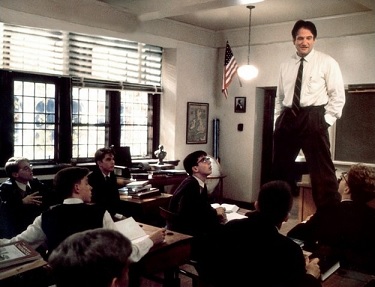


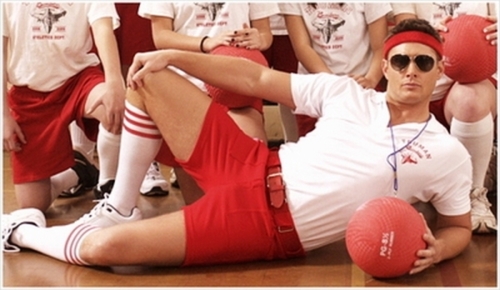 Our coaches spend an additional 173 hours a week coaxing a hundred kids at a time to at least break a sweat in their quest to become the next Lebron James or the new Tom Brady.
Our coaches spend an additional 173 hours a week coaxing a hundred kids at a time to at least break a sweat in their quest to become the next Lebron James or the new Tom Brady.  They commit themselves to innumerable evening activities and a steady stream of only those parents unhappy enough to call THEM instead of whichever teacher is ruining their child for life THIS time. They sacrifice any remaining energy enduring interminable meetings with folks carrying longer titles but much shorter job descriptions, then hurry back to catch that one long-term sub and explain yet again why the lesson plans the pregnant teacher left really ARE a pretty good idea to follow – or at least try – please just this once – oh god don’t make me find yet another warm body…
They commit themselves to innumerable evening activities and a steady stream of only those parents unhappy enough to call THEM instead of whichever teacher is ruining their child for life THIS time. They sacrifice any remaining energy enduring interminable meetings with folks carrying longer titles but much shorter job descriptions, then hurry back to catch that one long-term sub and explain yet again why the lesson plans the pregnant teacher left really ARE a pretty good idea to follow – or at least try – please just this once – oh god don’t make me find yet another warm body…  We’re cynical and bitter, but still ‘retweet’ and ‘share’ sappy motivational edu-memes much too freely. Waaayyyyy too many of us are still excited by the idea of test reviews via Jeopardy on the Smartboard or playing that Billy Joel song about not lighting Marilyn Monroe on fire.
We’re cynical and bitter, but still ‘retweet’ and ‘share’ sappy motivational edu-memes much too freely. Waaayyyyy too many of us are still excited by the idea of test reviews via Jeopardy on the Smartboard or playing that Billy Joel song about not lighting Marilyn Monroe on fire. 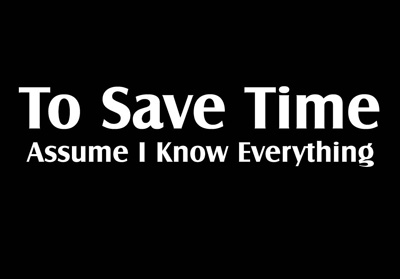
 Kids learn while playing, or while caught up in other things. Everything from blocks and unstructured time as a little person through video games or online arguments as a teen – information, good or bad, is created, encountered, or absorbed. This one is so very important and can be crazy effective – but it’s the one most threatened by the Cult of Assessment and our own unwillingness to Defy the Beast.
Kids learn while playing, or while caught up in other things. Everything from blocks and unstructured time as a little person through video games or online arguments as a teen – information, good or bad, is created, encountered, or absorbed. This one is so very important and can be crazy effective – but it’s the one most threatened by the Cult of Assessment and our own unwillingness to Defy the Beast.  We all know the value of parents reading to their children. In a perfect world they take them to museums or musical performances, or travel places promoting conversation and reflection. How many times a day does a parent or sibling overtly attempt to explain a ‘why’ or a ‘how’ to a little kid?
We all know the value of parents reading to their children. In a perfect world they take them to museums or musical performances, or travel places promoting conversation and reflection. How many times a day does a parent or sibling overtly attempt to explain a ‘why’ or a ‘how’ to a little kid? This is the ideal. Those kids who keep wanting to know if they can leave your class to go finish something in Engineering? They tend to get good at engineering. That girl who reads voraciously? She tends to get pretty good at reading. And don’t get me started about young people truly devoted to their choir, marching band, baseball team, or speech & debate.
This is the ideal. Those kids who keep wanting to know if they can leave your class to go finish something in Engineering? They tend to get good at engineering. That girl who reads voraciously? She tends to get pretty good at reading. And don’t get me started about young people truly devoted to their choir, marching band, baseball team, or speech & debate.  I have mixed feelings about this one.
I have mixed feelings about this one.  This may begin from above – parents, or even the school system itself – but often becomes internalized. Either way, this is a stress-driven type of learning with little lasting value.
This may begin from above – parents, or even the school system itself – but often becomes internalized. Either way, this is a stress-driven type of learning with little lasting value. This one is pretty rare if you eliminate the vague terrors in play above. There are a few, however, who are specifically chasing a degree in veterinary medicine, motorcycle repair, or that study abroad opportunity in Monaco. They press on because they know what they want.
This one is pretty rare if you eliminate the vague terrors in play above. There are a few, however, who are specifically chasing a degree in veterinary medicine, motorcycle repair, or that study abroad opportunity in Monaco. They press on because they know what they want.  If you torture them enough, confine them in stale rooms and badger them into compliance…
If you torture them enough, confine them in stale rooms and badger them into compliance… 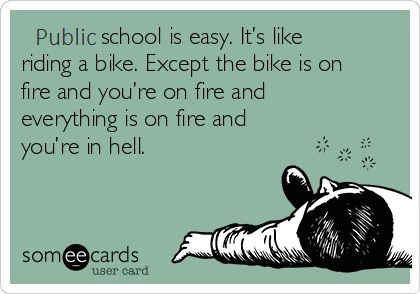

 It’s tricky to explain without sounding frustrated or hostile that I am, actually, going to some length to begin nudging their child towards young adulthood – some early modicum of personal responsibility.
It’s tricky to explain without sounding frustrated or hostile that I am, actually, going to some length to begin nudging their child towards young adulthood – some early modicum of personal responsibility.
 Being in Tulsa, one can’t help but maintain some awareness of the evangelical community and the world of relatively orthodox faith – American Protestant flavor. I’ve been in and out of it myself in years past.
Being in Tulsa, one can’t help but maintain some awareness of the evangelical community and the world of relatively orthodox faith – American Protestant flavor. I’ve been in and out of it myself in years past.
 What does ‘improvement’ look like, exactly? It might be possible to make Sunday mornings more entertaining, for example… does that require a trade-off involving doctrine or appropriate mindsets towards an omnipotent God? Maybe we could focus more on outreach and bringing in the lonely and dysfunctional. That certainly seems in keeping with the overall mission, but what do constant new names and their weird issues do to that community the rest of us need so badly?
What does ‘improvement’ look like, exactly? It might be possible to make Sunday mornings more entertaining, for example… does that require a trade-off involving doctrine or appropriate mindsets towards an omnipotent God? Maybe we could focus more on outreach and bringing in the lonely and dysfunctional. That certainly seems in keeping with the overall mission, but what do constant new names and their weird issues do to that community the rest of us need so badly? 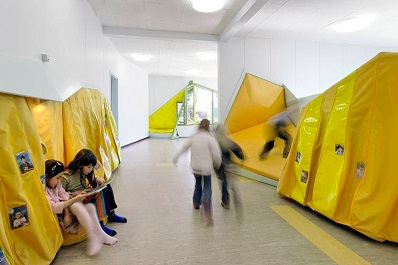
 What does improvement even look like, exactly? It might be possible to raise test scores, for example… does that require a trade-off involving personal fulfillment or student attitudes towards learning or the miraculous possibilities it offers? Maybe we could focus more on creative ways to reach the misfits and the underachieving. That certainly seems in keeping with the overall mission, but what does pouring all of our resources into the most draining minority of our population do to the standards and expectations the rest of them need held firmly in order to flourish?
What does improvement even look like, exactly? It might be possible to raise test scores, for example… does that require a trade-off involving personal fulfillment or student attitudes towards learning or the miraculous possibilities it offers? Maybe we could focus more on creative ways to reach the misfits and the underachieving. That certainly seems in keeping with the overall mission, but what does pouring all of our resources into the most draining minority of our population do to the standards and expectations the rest of them need held firmly in order to flourish?